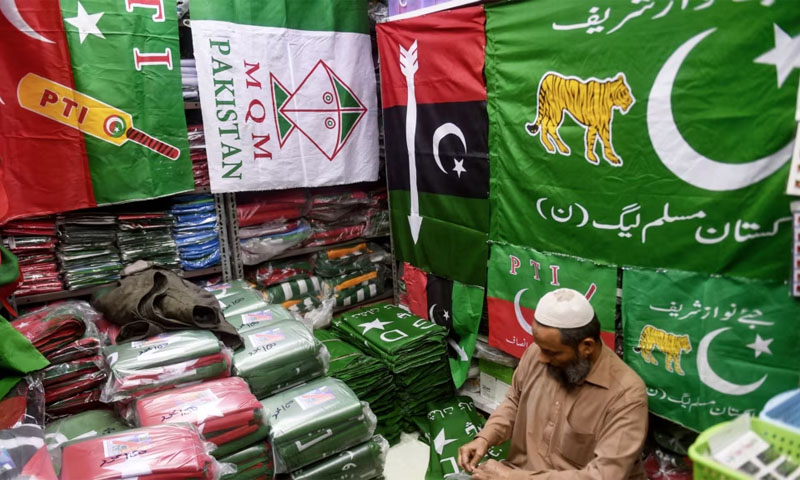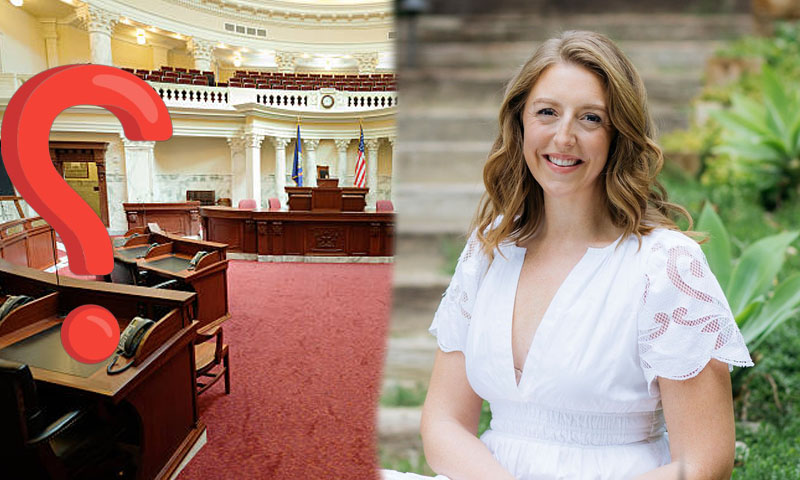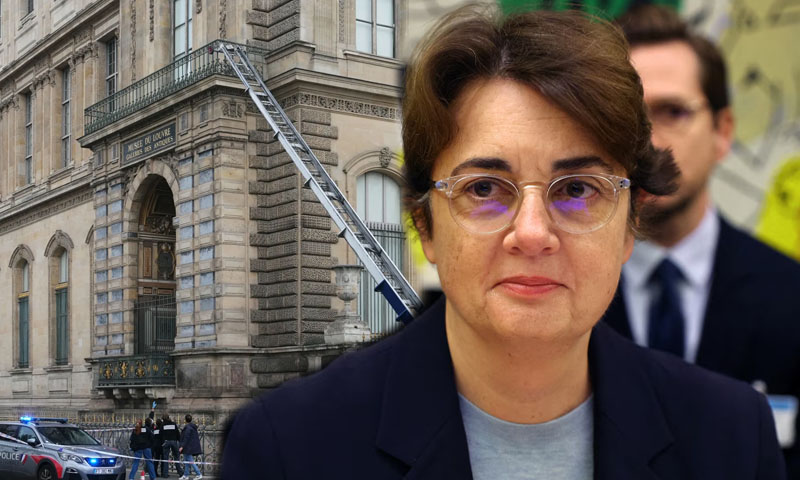- Web
- Yesterday
Elections, rigging, ousters: did democracy shine in 2024?
-

- Web Desk
- Dec 31, 2024

When 2023 was drawing to a close, the year 2024 was gearing up for having elections every month, and that too for global players like Russia, the United States, the United Kingdom and the European Parliament among others. In the local context as well, South Asia made sure to dominate democracy, farcical or otherwise, as elections took place in Pakistan, India, Sri Lanka and Bangladesh, with surprises all around.
What probably no one saw coming this year was the power of the people who rose and took to streets demanding accountability of those ruling them. Bangladesh, Syria and South Korea all saw the status quo being challenged.
Now as 2024 is winding up, we take a look at the elections from some countries and similar developments that took place globally:
January:
The first month of the year witnessed Sheikh Hasina win her controversial fifth term in Bangladesh after the elections took place on January 8. Her fifth tenure seemed, however, short-lived as bloody July protests drove her out on August 5 to India. Nobel Laureate Dr Muhammad Yunus returned to Dhaka this year and is currently the interim Chief Advisor in the country. He said that new elections will take place in late 2025 or early 2026.

In Finland, right wing party National Coalition Party, KOK liberal leader Alexander Stubb became the president with 51.6 percent of the vote after defeating left-wing Green politician Pekka Haavisto. The first round was held on January 28 with the second followed on February 11.
February:
Pakistan finally had its highly awaited general elections on February 8, marred by controversies as Pakistan Tehreek-e-Insaaf, which was set to sweep the elections, stood defeated thanks to delayed results, and the infamous engineering of elections. Shehbaz Sharif of Pakistan Muslim League (Noon) became the Prime Minister for the second time. The elections were supposed to elevate democracy in the country but instead widespread internet shutdown and restrictions on social media have dominated the discourse. The opposition parties continue to maintain that the election was not free and fair.

The Indonesian election commission had confirmed Prabowo Subianto as the new president in March, who won on February 14 sweeping 59 percent of the votes. August saw unrest in the country as protesters took to streets to raise their voice against corruption amid police crackdown.
March:
Portugal was to see a snap election in March after Prime Minister Antonio Costa had announced his resignation owing to a corruption probe in November 2023. The centre-right had claimed victory, albeit narrowly after the elections took place on March 10. Democratic Alliance leader Luís Montenegro became the Prime Minister.
April:
Hands down, 2024 was a very dramatic year for South Korea. On April 10, the country held its 22nd general election with the opposition Democratic Party emerging victorious. President Yoon Suk Yeon took the charge. But early December, Yoon attempted to declare a martial law which was quickly overturned and the Assembly voted in favour to impeach him.
The Lok Sabha election in India commenced on April 19, and concluded on June 1 after being held in seven phases. As expected Narendra Modi’s Bharatiya Janata Party (BJP) emerged victorious but failed to achieve their ‘300 Paar’ mark falling short of its 370 target (400 with coalition parties) in the 543 lower house of the parliament.

May:
Jose Raul Mulina who was banned from running won the presidential elections in Panama held on May 5.
Making history following May 29 elections in South Africa, the African National Congress party suffered a considerable loss for the first time. The party which used to be led by Nelson Mandela could only win 57 percent of the vote. Cyril Ramaphosa got his second-term as South Africa’s president but the position is not as strong as earlier.
June:
History was made in Mexico when the country saw its first ever female president after left leaning Claudia Sheinbaum raked in a landslide victory in what was dubbed as ‘country’s biggest election’.
The European Parliament elections that took place from June 6 to June 9 were the first since Brexit. Right-leaning groups emerged victorious as France grappled with its government and Germany called for a snap election earlier this week.
July:
United Kingdom: The former prime minister, Rishi Sunak had announced on May 22 that the parliament would be dissolved and elections to be held on July 4. Labour swept through with Sir Keir Starmer becoming the prime minister in July.

September:
Russia: Dubbed as a ‘sham’, the election in Russia took place from September 6 to September 8 with Vladimir Putin receiving 87 per cent of the vote with a 77 per cent turnout.
Sri Lanka: The country elected a Marxist-leaning president Anura Kumara Dissanayake in the elections held on September 21, the nation’s first since the economic and political crisis of 2022.
October:
Facing the brunt of criticism by rights group, Tunisia’s President Kais Saied won his second-term by scooping more than 90 percent of the votes in the elections that took place n October 6.
Longtime ruling Liberal Democratic Party-Komeito lost the majority in lower house plunging Japan into an uncertain political future following the elections on October 27. Shigeru Ishiba who is also president of the Liberal Democratic Party became the PM.
November:
Despite a heavy funded campaign by Kamala Harris, United States yet again did not a woman president rather Donald Trump returned to the White House after winning 312 seats as opposed to 226 by Harris. Trump would be sworn on January 20, 2025.

December:
The 13-year long civil war in Syria came to an end when dictator Bashar al-Assad was ousted by rebel militants led by Hay’at Tahris al-Sham (HTS). The leader of the group Ahmed al-Sharaa said that elections can take up to four years.





